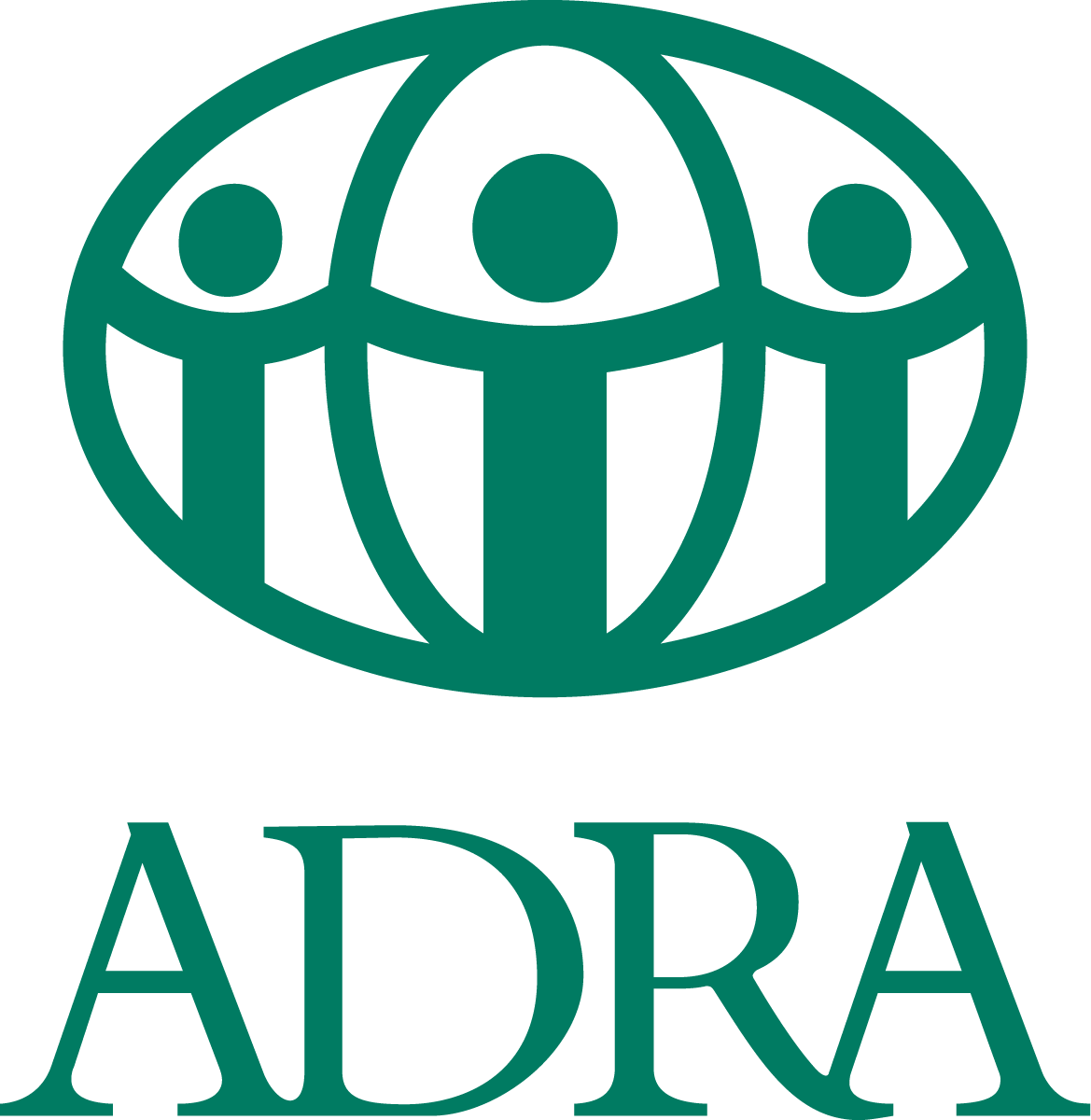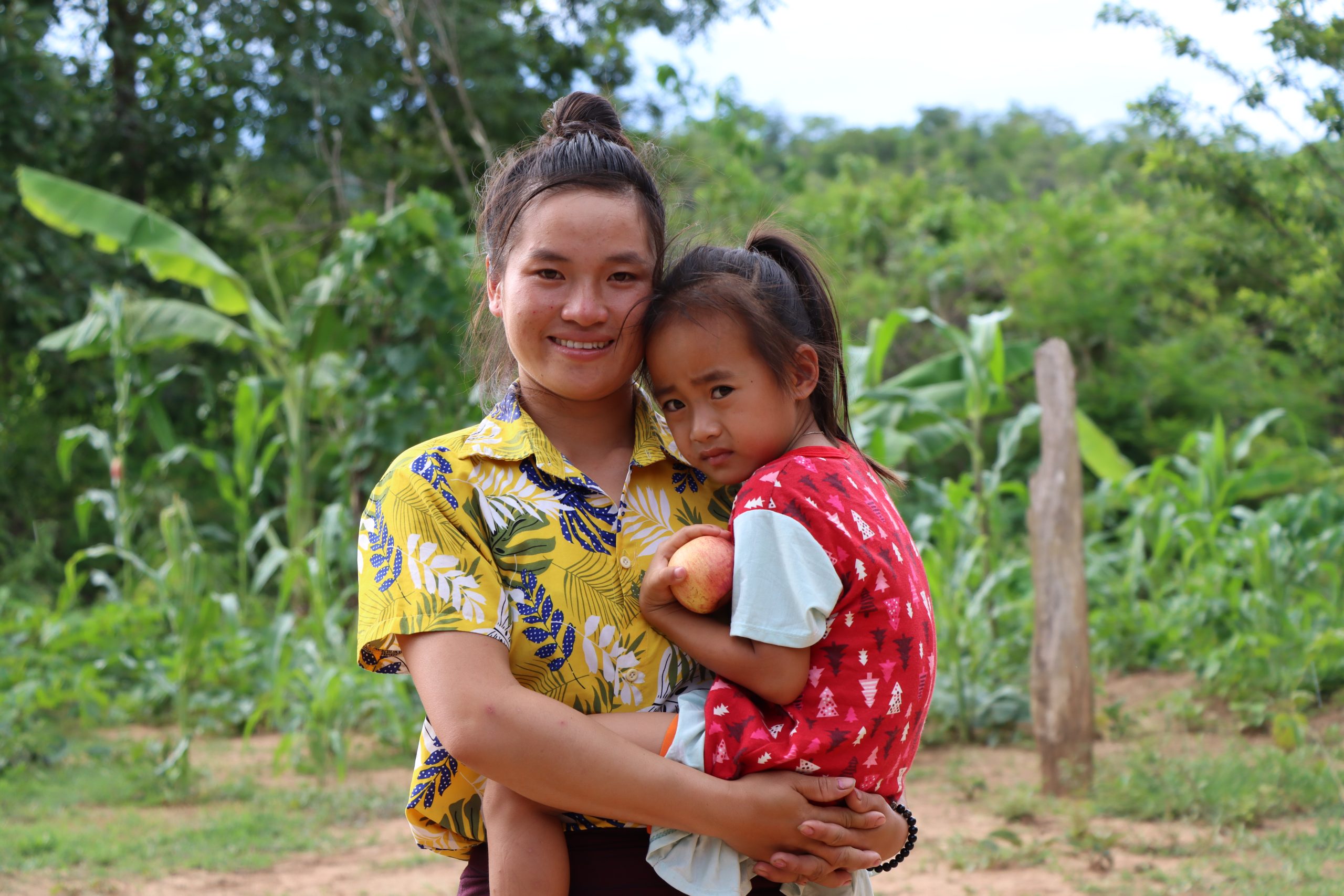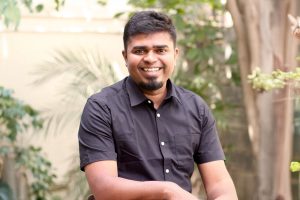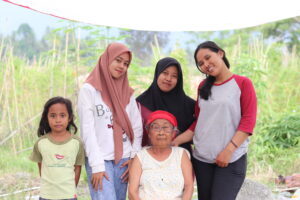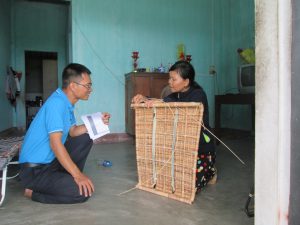“When I was pregnant, I didn’t rest much as I worked on the farm. On that day, I came back in the evening with labor pain, soon after my daughter was born. Because we are poor and there are few people in our family, I had to help my family,” said Siphone, a 25-year-old mother who lives with her husband and four-year-old daughter in Sobkhao Village, Xiengkhouang Province, Laos. Siphone’s baby daughter joined the Enhanced Nutrition and Health for Upland Phoukoud Phase II (ENHUP II) Project because she was underweight and unhealthy.
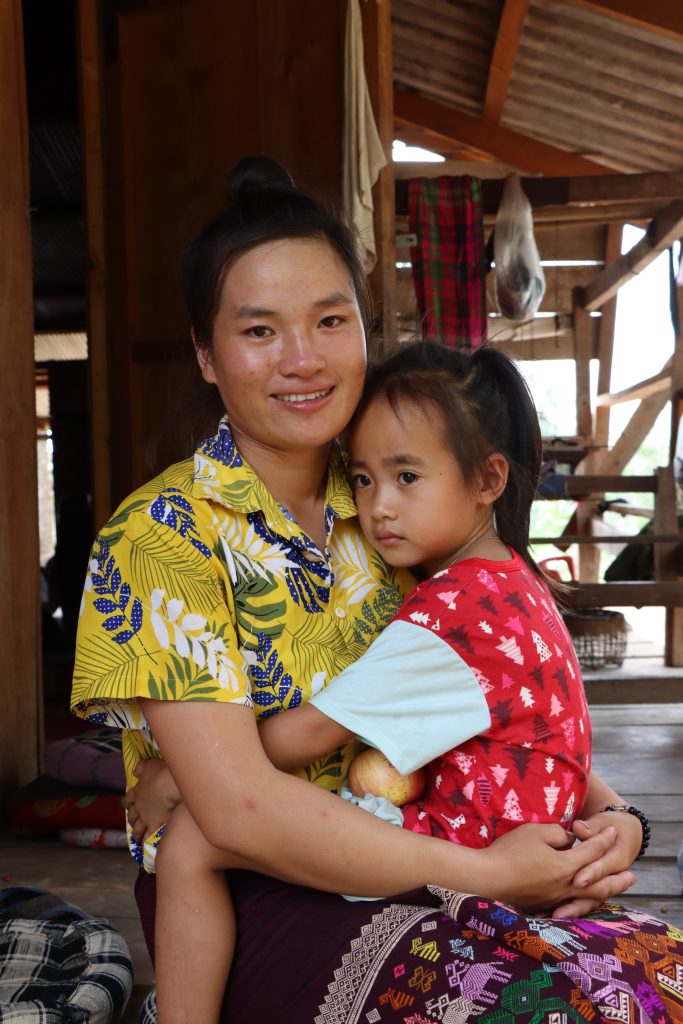
When her daughter was three months old, she started to introduce her to food because she had to go back to work. Siphone left her child with her parents during the day. Before she left, she cooked rice soup for her daughter and breastfed her when she came home in the evening. “I was thinking that the reason why my daughter was underweight and always sick was because I didn’t have enough rest when I was pregnant, and I didn’t eat anything nutritious. I lived a normal life,” Siphone stated.
Three years ago, the ENHUP II project came and did measurements for children. The results showed that Siphone’s daughter was underweight. Siphone was mortified thinking her daughter was malnourished because she was unhealthy. Siphone continued to tell the team that before the project came, her daughter was often sick, 2-3 times a month and thin. However, she didn’t know the cause of her child’s frequent illness. After she learned this from the project, she was able to connect the dots.
Siphone participated in ENHUP II’s cooking programs, and nutrition and health awareness sessions where she learned much knowledge, especially about cooking for her children. She learned cooking must be clean, and the food must be varied. In the past, the family had enough food to eat, but they did not know how to cook it properly for their children, so they gave only one or two different foods per day. In addition to cooking, she has also paid more attention to taking care of her child, which is different from before, when she let her child do whatever she wanted.
“Before, when it was cold, children wore short clothes; they didn’t like to wear long clothes. Now I pay more attention to them. Before, they were too indulgent; they wanted to do whatever they wanted. Now we don’t indulge them, we must take care of what is necessary, such as in winter when we put them in long clothes to keep them warm. Same with food. Children didn’t like to eat vegetables. We didn’t force them. We only cooked rice soup for them. Now we are slowly feeding them and influencing them by what they are interested in so that they can eat vegetables and meat, as it is beneficial.” Siphone said.
Now, her child’s illness has decreased. In the future, Siphone would like to have another child, using the lessons learned to take better care of them. She will rest more while pregnant, eat more nutritious food, and exclusively breastfeed them up to 6 months old, so it won’t affect their health.
“I want to see my family healthy; I want my children to have knowledge and wisdom; if possible, I want my children to graduate with a bachelor’s degree; and I will support them to the best of my ability so they can have a better life as well as help our family escape from poverty,” said Siphone.
Author: Soudalat Pathammavong, ADRA Laos
Photo: © 2023 ADRA Laos | Soudalat Pathammavong
*This story was featured in ADRA Asia Regional Office’s quarterly Magazine, ADRA Asia Focus V3N3
Visit the ADRA Laos website to learn more: https://adralaos.org/
